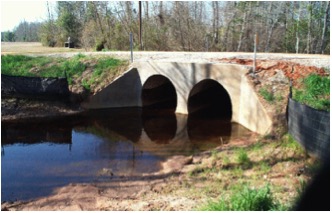Native American Treaties, Declining Salmon Populations, Broken Promises & Environmental Justice
Pending Washington v. U.S. Supreme Court Decision Offers Hope & Vindication for Tribes, Coastal Fisheries
Truth be told, the U.S. Supreme Court’s 2017-18 Term has been an unsually quiet one for environmental and natural resources law. Until now.
This week the Supreme Court heard oral arguments in a last-minute addition to the Court’s current docket. Washington v. United States, No. 17-269, a case the justices only accepted for review in January, looms as the most consequential environmental Supreme Court decision of 2018. It’s also a fascinating mix of Western American history, Native American law and policy, fisheries protection and environmental justice.
The Washington case has its historical and legal roots in a 164-year old treaty in which the federal government granted Native American tribes in Western Washington permanent fishing rights. The 1854-55 “Stevens Treaties” (named for the Governor of the then-Washington Territory and Superintendent of Indian Affairs who negotiated the pacts with the tribes on behalf of the federal government) guaranteed the tribes “the right of taking fish, at all usual and accustomed grounds and stations…in common with all citizens of the Territory” in exchange for the tribes’ relinquishment of their claims to 64 million acres of land in Washington in favor of relocation to tribal reservations.

The Washington tribes’ principal concern–both in the mid-nineteenth century and today–has been preserving their access to regional salmon fisheries that have played such a vital role as a tribal food source, means of commercial exchange and for cultural and religious purposes. As was the case with most nineteenth century government-tribal treaties, the Stevens Treaties turned out to be a bad deal for the Washington tribes. The fishing rights they’d negotiated were quickly trampled, both by white settlers who relocated in the region and often blocked Native American fishers’ access to the waters of northwest Washington, and by white commercial fishermen who by the end of the 19th century were catching enormous quantities of salmon in the region, leaving precious little fish for tribal members using their more traditional fishing methods and gear.
After Washington was admitted to the Union in 1889, state officials overtly and repeatedly acted to frustrate the tribes’ exercise of their on- and off-reservation fishing rights granted under the Stevens Treaties. This state of affairs prompted numerous political and legal conflicts in the late 19th and early 20th centuries, including two cases ultimately decided by the Supreme Court–both interpreting the Stevens Treaties in the tribes’ favor.
Fast forward to the late 20th century: the United States, both on its own behalf and as trustee for the Pacific Northwest tribes, sued Washington State in 1970 to address the state-federal/tribal political conflicts and enforce the Stevens Treaties’ fishing clause. By that time, however, the single greatest threat to tribal fishing rights had become modern technology–specifically, the extensive system of road culverts that the state and its political subdivisions had built to channel rivers and streams underneath the state’s road and highway system. It’s essentially undisputed that Washington’s road culvert system substantially impedes the migration of salmon both upstream and downstream. That, in turn, has led to the substantial diminution of salmon populations in western Washington, to the detriment of Native American and white fishers alike. (It’s also undisputed that technology currently exists by which state and local road builders can avoid this adverse environmental impact by designing road culverts that allow unobstructed fish passage.)

In an earlier phase of this longstanding litigation, a federal district court held–and the Supreme Court ultimately confirmed–that under the Stevens Treaties the tribes have the right to up to 50% of the harvestable fish in the affected region in western Washington.
The latest chapter in this protracted legal saga began in 2001, when the tribes and federal government asked the district court “to enforce a duty upon the State of Washington to refrain from constructing and maintaining culverts under State roads that degrade fish habitat so that adult fish production is reduced.” Washington State’s legal response to this claim was straightforward: “there is no treaty-based right or duty of fish habitat protection” as asserted by the federal government and tribes.
The district court ruled in favor of the tribes and U.S., concluding that the fishing clause of the Stevens Treaties imposes a duty on Washington State to refrain from building or operating culverts under state roads that hinder fish passage and thereby substantially diminish the number of fish that would otherwise be available for tribal harvest. The district judge thereafter held a trial to determine an appropriate remedy, eventually issuing a detailed injunction requiring state officials to inventory all state-owned barrier culverts; take immediate steps to retrofit some of the most damaging culverts; and mandating that the remainder be retrofitted at the end of their useful lives.
The Ninth Circuit Court of Appeals affirmed in a lengthy, unanimous opinion authored by Judge William Fletcher. The Court of Appeals concluded that by building and maintaining a system of barrier culverts, “Washington has violated, and is continuing to violate, its obligation to the Tribes under the Treaties.” Rejecting the state’s argument that the government’s treaty obligations do not extend to fisheries habitat protection, Judge Fletcher concluded:
The Indians did no understand the Treaties to promise that they would have access to their usual and accustomed fishing places, but with a qualification that would allow the government to diminish or destroy the fish runs. Governor Stevens did not make, and the Indians did not understand him to make, such a cynical and disingenuous argument.”
In its successful petition for certiorari, Washington State argues that its obligations under the Treaties do not extend to providing fish-friendly culverts and road projects; that the federal government is equitably estopped from arguing to the contrary by virtue of having approved some of the offending culverts; and that the injunctive relief granted by the lower courts offends federalism principles and imposes an undue financial burden on the state.

The respective legal arguments advanced in the Washington case have a decidedly through-the-looking-glass quality to them: on the one hand, Washington–normally a progressive and environmentally-conscious state–is taking a quite conservative legal and political position usually embraced by the reddest of red states. Conversely, the Trump Administration and Justice Department have maintained the same aggressive advocacy in favor of the tribes’ fishing rights and fisheries protection that previous administrations have advanced in the Washington litigation. (The latter comes as a pleasant and most welcome surprise.)
One other interesting jurisprudential footnote to the case: Justice Anthony Kennedy announced he would recuse himself from the Court’s deliberations in the Washington case after he belatedly discovered that in 1985 he’d participated in an earlier phase of the same litigation while serving as a judge on the Ninth Circuit Court of Appeals. (Kennedy’s recusal would be more consequential if Washington were a “normal” Supreme Court case in which his vote would likely be decisive; however, the justices’ votes in Native American law cases generally don’t track their normal progressive/conservative voting patterns.)
Early press reports indicate that the Supreme Court’s April 18th arguments did not go particularly well for Washington State. That’s both unsurprising and a very good thing. The federal government and the tribes have the better of the legal argument in Washington. The lower federal courts were quite right to reject Washington State’s argument that its construction of environmentally-damaging infrastructure, responsible for devastating fisheries on which the tribal nations depend, is somehow consistent with its longstanding obligations under the Stevens Treaties. As Ninth Circuit Judge Fletcher aptly noted, that’s a cynical and disingenuous argument indeed, and one that the Supreme Court should reject.
Ultimately, Washington v. United States is a case about environmental justice, and the obligation of government to live up to both the letter and spirit of its fiduciary duty to Native American tribes under longstanding treaties. For centuries, government has failed to do so. Hopefully, the Supreme Court’s decision in Washington–due by the end of June–will follow a different and more just legal path.
Reader Comments
6 Replies to “Native American Treaties, Declining Salmon Populations, Broken Promises & Environmental Justice”
Comments are closed.







Pruitt Explains Plan for Scientific Transparency Initiative at EPA:
“………..Environmental Protection Agency (EPA) Administrator Scott Pruitt said Sunday he plans to increase transparency in how the department uses scientific analysis to create rules and regulations.
Pruitt told radio host John Catsimatidis on AM 970 in New York that he’s found much of the research used to create EPA rules comes from third parties.
“One of the things that were changing here soon is to say, look, if third parties are used as the basis of rule-making as we adopt rules, it’s important for the American people to have transparency on the data that was reviewed,” Pruitt said in an interview broadcast Sunday.
As a result, Pruitt said the EPA will be announcing its transparency initiatives “very soon.” When a third party group conducts an analysis for the EPA, the findings will include the data and methodology as well, Pruitt said, “so people can form their own opinions on whether it was done right.”
“It goes to the heart of what we should be about as an agency, which is making sure, as we get comments from citizens across the country on our rules, that they can make informed comments,” he added……………….”
http://thehill.com/homenews/sunday-talk-shows/384288-pruitt-explains-plan-for-scientific-transparency-initiative-at-epa
“it’s important for the American people to have transparency on the data that was reviewed”
Even though BQRQ won’t address it, I’ll post this again just so no one is deceived by Pruitt’s misdirection:
The only “lack of transparency” in any of these studies is in regards to data that can not legally be disclosed. More specifically:
“Some of those studies, particularly those that determine the effects of exposure to chemicals and pollution on health, rely on medical records that by law are confidential because of patient privacy policies. These studies summarize the analysis of raw data and draw conclusions based on that analysis. Other government agencies also use studies like these to develop policy and regulations, and to buttress and defend rules against legal challenges. They are, in fact, essential to making sound public policy.
The agency also relies on industry data to develop rules on chemical safety that is often kept confidential for business reasons.”
“So why would he want to prohibit his own agency from using these studies? It’s not a mystery. Time and again the Trump administration has put the profits of regulated industries over the health of the American people. Fundamental research on the effects of air pollution on public health has long been a target of those who oppose the E.P.A.’s air quality regulations, like the rule that requires power plants to reduce their mercury emissions.
Mr. Pruitt’s goal is simple: No studies, no data, no rules. No climate science, for instance, means no climate policy.”
https://www.nytimes.com/2018/03/26/opinion/pruitt-attack-science-epa.html
As is often the case, Republican politicians have crafted a narrative to hand to the gullible rubes in order to cloak their actual motivation: servicing the interests of their industry donors. Let’s not forget that for the six years before he became the head of the EPA, Pruitt spent his time suing the EPA to try to reduce regulations on smog, mercury, and other forms of pollution. The new second in command of the EPA, Andrew Wheeler, is literally a former lobbyist for the coal industry.
This is the Trump swamp, and those who trust only right-wing media, like BQRQ, eat it up.
Trump on Earth Day: ‘Strong, market-driven economy is essential’ to protecting environment’:
“…….President Trump celebrated Earth Day on Sunday with a message promoting how a “healthy environment and a strong economy go hand in hand.”
“We know that it is impossible for humans to flourish without clean air, land, and water. We also know that a strong, market-driven economy is essential to protecting these resources,” the president said in his message. “For this reason, my administration is dedicated to removing unnecessary and harmful regulations that restrain economic growth and make it more difficult for local communities to prosper and to choose the best solutions for their environment.
“Already, we are making great economic progress in concert with—not in opposition to—protecting our environment……….”
https://www.washingtonexaminer.com/news/trump-on-earth-day-strong-market-driven-economy-is-essential-to-protecting-environment
Not surprisingly, BQRQ can’t address any information that doesn’t confirm what he wants to believe. Here is a little more on Trump’s head of the EPA who BQRQ wholeheartedly supports.
Scott Pruitt told staffers ‘find me something to do’ when he wanted to vacation on the taxpayer’s dime
“• Environmental Protection Agency chief Scott Pruitt insisted on luxury hotels and regular trips home to Oklahoma on the taxpayer’s dime, his former deputy chief of staff told congressional investigators.
• Kevin Chmielewski, who was fired after voicing his objections, says Pruitt told staffers to “find me something to do” in order to schedule travel to his desired destinations.
• This comes amid a series of reports that Pruitt has potentially misused agency funds through excessive security and first-class travel and engaged in other ethically questionable behavior.
Scott Pruitt, head of the Environmental Protection Agency insisted on staying at luxury hotels that exceeded the government’s cost parameters, flying with airlines not approved by the agency in order to earn personal frequent flier miles, and sometimes fabricated reasons for taxpayer-funded travel, according to one of his former senior deputies.”
http://www.businessinsider.com/scott-pruitt-find-me-something-to-do-travel-2018-4
FAKE NEWS
“FAKE NEWS”
Does BQRQ have any evidence that indicates what I posted was fake news? Of course he doesn’t. But it feels like it can’t be true because it goes against what he wants to believe about his new hero at the EPA. Unfortunately this is conservatism in the age of Trump: dismiss anything that feels uncomfortable to come to terms with.